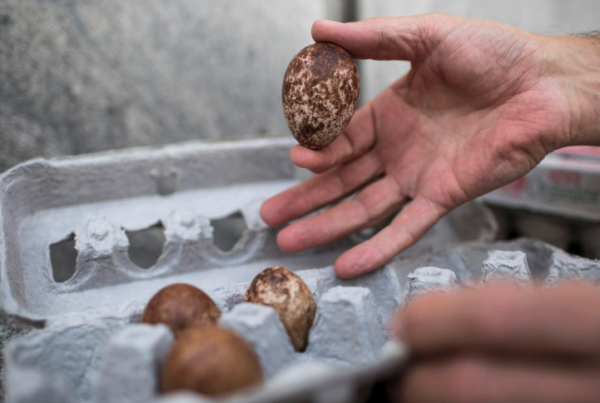Twenty five percent of the country’s cotton comes from Texas, and a big chunk of that comes from an area in the Panhandle near a town called Quitaque. But for these residents of this town, that distinction comes at a very high price – too high, some residents say, as they see their own crops damaged by the inadvertent drop of pesticides over the wrong fields. In some cases, they’ve begun to fear they’re being poisoned themselves.
Christopher Collins, a freelance journalist who investigated the story for the Texas Observer, says he’s surprised by the relative inaction on the part of the the Texas Department of Agriculture.
“I think about 40 residents there had filed complaints about having chemical drifted on them,” Collins says. “In a community of less than 400 people … that’s an enormous percentage and it’s something they’re pretty ticked off about.”
The chemical in question, paraquat dichloride, is used in cotton country because of its effectiveness at killing weeds and other pests, Collins says. However, he also says this toxicity raises the stakes for Quitaque residents who might be exposed to it.
“People have talked about respiratory problems and trouble breathing, dizziness and nosebleeds,” Collins says. “But sometimes it’s very difficult to connect a low-level exposure, or even a persistent exposure of these chemicals to certain health problems. In fact, some doctors even find it difficult to make that connection.”
Despite the difficulty connecting these symptoms to the pesticide, Collins says citizens of Quitaque are concerned about the health hazards it might be creating. These potential consequences are only exacerbated by the climate of the region.
“In the panhandle, it’s windy and it’s hot and those are the two conditions … that you just can’t spread your chemicals because it’s very difficult to control where they’re going,” Collins says.
While the TDA has sent at least one investigator out to Quitaque, Collins says he believes the investigation is open. In the meantime, Collins says residents are beginning to take actions of their own.
“They’re talking to a local attorney, they’re discussing their legal options,” Collins says. “They have kind of a group that sends text messages, calls—they make sure that they’re there to film it [and] document that pesticide application possibly for later use.”
Though it begins to seem as if citizens of Quitaque are forming a case for themselves, Collins says this is probably just a last resort.
“Like a lot of small towns in Texas, they’re pretty easy-going people,” Collins says. “They don’t really want to start problems for anyone or for themselves and they would rather not be the focus of news stories and look like their victims.”
Written by Morgan O’Hanlon.
















